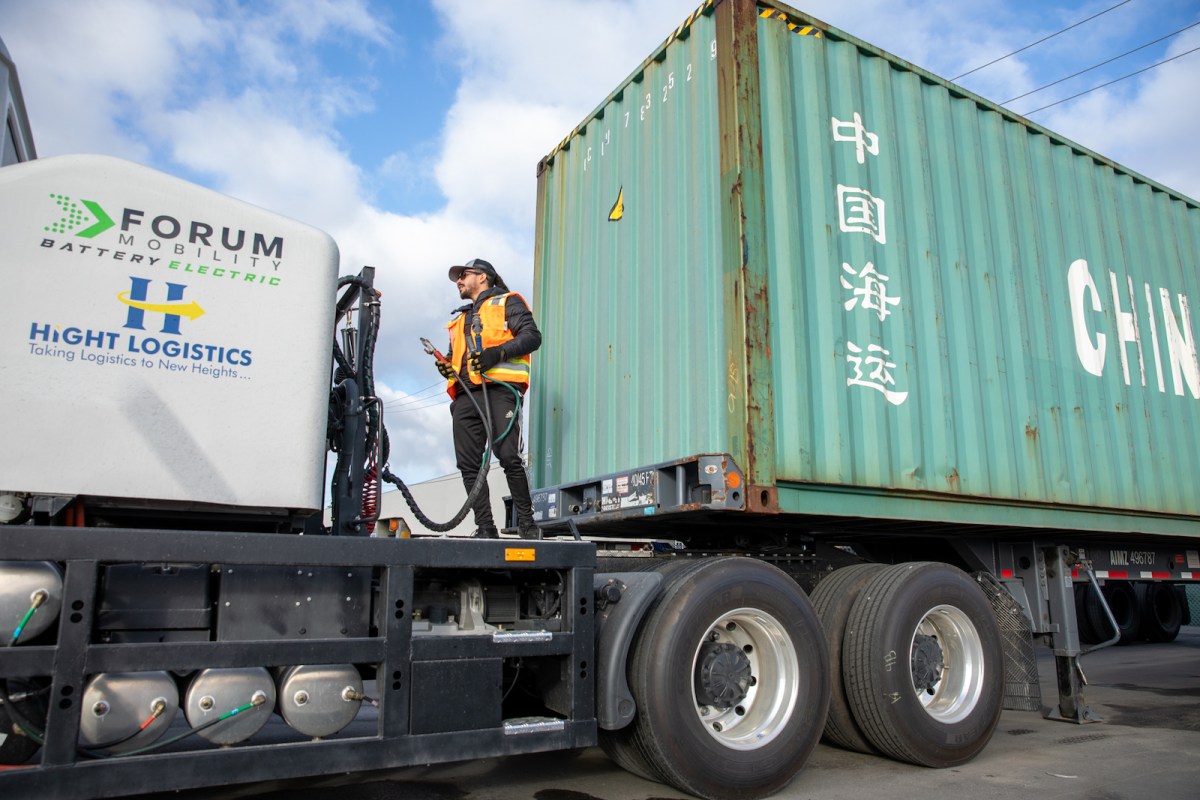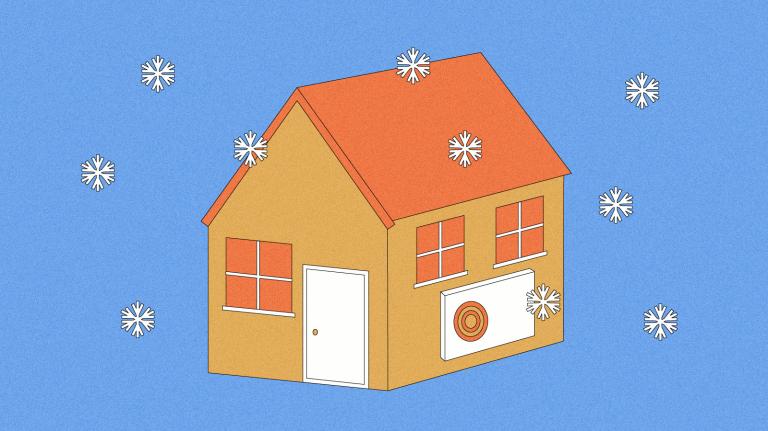
The spotlight
Hey, fam! Over the past few weeks, we’ve gotten some really thoughtful responses to our issues about airships, medical curricula, and heat pumps — so much so that we wanted to share your insights and anecdotes with the full Looking Forward community.
After a newsletter goes out, we’re already looking toward the next story. But, of course, we hope that each issue will spark or fan the flames of continued interest in the topic. That’s certainly the case for us, your trusty writers and editors. And, once we’ve immersed ourselves in a topic, it feels like we suddenly start seeing a gazillion more interesting new stories about it — stories we want to keep sharing with all of y’all.
So today, we’re offering up a “mailbag”: a collection of snippets and feedback from fellow readers (lightly edited), along with links to relevant articles we’ve stumbled on in the meantime.
— Claire Elise Thompson
![]()
Airships were meant to fly
We were stoked to hear from several of you how the vision of sustainable travel resonated — and some ways you’re starting to experiment with it.
![]()
Been thinking a lot about the need for slowing down, and how convenience and speed in many ways is at the cost of the planet. It reminded me of Bill McKibben’s “Might there be blimps?” from The Crucial Years newsletter. Also really appreciated the hope balanced by the costs of the helium and also how these airships would play into global transportation infrastructure.
— Levi Schult
![]()
My mom and I are planning a trip to visit my brother in Japan for the first time since he moved over there in 2019, and I have made it a non-negotiable that we take the bullet train somewhere while we’re there, and I’m freaking stoked.
Kyoto also has a railway museum I’m hoping to visit during the trip to learn more about the bullet train. It’ll be an interesting experience. I’ve been taking the Amtrak back and forth across Washington for much of my life, so I can’t wait to experience the difference between Amtrak and the Shinkansen.
— Syris Valentine
More more exposure
- Since we published our newsletter on airships, United Airlines and other companies announced a $100 million venture-capital fund to invest in sustainable aviation fuel. Read about it in the New York Times.
- Wirecutter tackled the topic of carbon offsets for flights — and how else to lighten your travel.
- At the end of Black History Month, the Washington Post explored a historic list of patents from Black inventors — including an airship design from 1899.
- A reporter from New Scientist took a tour of an Airlander ship with Hybrid Air Vehicles.
- And one of our readers, Lewis Kuhlman, pointed to the HBO show His Dark Materials as another fictional universe (like Ministry for the Future) that heavily features airships. You can catch a glimpse of them in the video linked below (and learn more about the worlds of the show, if you’re interested).
Climate ed for Harvard Med
As the partner of a fourth-year medical student, I was excited to share this newsletter with my fiancé and many of our friends (one of whom started composting since reading it)! But, for providers and patients alike, the health impacts of climate change can be heavy. We asked whether your health or well-being has been impacted by the climate crisis, and we’re grateful to those of you who felt comfortable enough to share openly about the struggles and fears you’re facing — ones that others may share.
![]()
My mental health suffers greatly. I am disabled and have a young child. I have seen how people like me have been left behind, cast aside, forgotten, devalued in the face of COVID. It is clear that society as a whole views us as expendable, and that we aren’t missed when forced to remain removed from society. It is a dress rehearsal for what is to come, and I can’t make myself believe we will have the resources to survive or that anyone would want us to.
I fear for my son’s future. I fear he will be condemned to a life of suffering. I fear for the day he realizes he faces nothing but future horrors and it inevitably crushes him and his cheerful innocence. I have frequent panic attacks about these things.
Living in Florida we are used to extreme heat and at least hurricanes, so we are always somewhat prepared for those, but with increasing intensity I just don’t know.
— Anonymous reader
More more exposure
- Grist has covered the growing trend of climate-informed therapy a few times in the past, and the intersection of climate and mental health is an area we definitely plan on exploring more — perhaps even in our book club together.
- Also, since we published our newsletter about Harvard Med, GreenBiz covered the rise of climate education in business schools.
- The conservative think tank Heartland Institute launched a climate misinformation textbook targeted at middle and high schools. Grist has the scoop.
- The 19th published a profile of a Berkeley student who designed her own climate course focused on solutions.
![]()
A heat pump for all seasons
This topic generated perhaps the most buzz of any newsletter we’ve sent to date. We loved hearing about your experiences (including one reader in New Zealand who was tickled by the idea that the U.S. is just recently discovering heat pumps). It’s certainly giving us ideas for future stories about energy efficiency — and degrowth, as another reader recommended below.
![]()
I can never pass up an article on heat pumps. I was an early adopter, so long ago I can’t remember exactly when I made the switch.
The house I live in now was built in 1975 and is all-electric. I have a heat pump and an electric emergency backup that very rarely kicks on. I average about $100 per month for all my energy needs and subscribe to “green” power sources.
It’s exciting news about the cold-climate heat pumps. Certainly preferable to fossil fuel or forest-derived fuel sources. That said, the quote “This is the first time since huddling and shivering that we’ve got a heating system that doesn’t burn anything” is somewhat misleading. That would not be true if the source of the energy powering the heat pump was a carbon-based fuel. And so-called “clean” energy also has an environmental impact in terms of extraction of metals for various systemic needs and potentially disruptive use of land, etc. I feel good about the shift to non-carbon based energy, but overall, we need to learn ways of having the “good life” with a much smaller energy — whatever the source — footprint.
— Robert Cluck
![]()
I live in Maine, in an old farmhouse without enough insulation (although we’re working on that), and I am heating my house with two heat pumps. When the old wood furnace bit the dust, we had to figure out how to stay warm while being environmentally conscious. Insulation is part of the equation, and we put in two heat pumps in 2021 and one more in 2022.
I hear it all the time: “Heat pumps are great for the shoulder seasons, but when it gets really cold (choose your number), they don’t work.” That hasn’t been my experience. When we had below-zero weather they worked just fine.
When they don’t work, however, is when the electricity goes out. To be fair, most heat sources (our pellet stove included) need electricity to function. If you don’t have a wood stove, you are in trouble. And the electricity has gone out three times this winter — one time the outside temperatures were below zero. Thank goodness the electricity was restored in a matter of hours.
Heat pumps were not inexpensive to install, even considering the rebate. Plus they have to be expensive to manufacture. The kicker is this: My electricity bill for December 2022–January 2023 was $433. Last year for the same period it was $300. And the year before that: $150. Some of this is due to gouging rate hikes. But some is also due to the cost of heating in extremely cold temperatures with heat pumps.
— Ellen Gibson
![]()
I can’t speak to a home heating switch — we’re having an absentee landlord moment in our current apartment — but I’d love to chime in from another angle: municipal heat pumps in Maine.
Just as homeowners are grappling with more unbearably hot days in the summer, our local towns are feeling the heat in their municipal buildings. They’re also feeling the strain of heating prices in the winter. Though our winters are warming faster than summers in Maine, the costs associated with old, inefficient heating systems and poorly weatherized town buildings still take a significant chunk out of local budgets. Especially in small communities here in western Maine, community members end up feeling that cost in their taxes.
We have heard about these concerns time and again from the towns we work with through Maine’s Community Resilience Partnership, which is another major energy-and-climate program that Maine has rolling at the moment. In our work as a service provider for the partnership, we have worked with 10 communities to help them identify their resilience priorities and apply for funding to implement projects. One priority that has consistently been raised across these conversations has been heat pump installation in town buildings.
And here is where it comes full circle: Efficiency Maine has heard that need and currently has a special incentive program for small municipalities to fund energy efficiency retrofits, including heat pumps. We have already helped two towns receive full funding for heat pump installations and anticipate several similar projects coming down the line.
So that’s our heat pump sitch out here in the Western Foothills! Maybe someday I’ll have a landlord who cares enough to make the switch (or even — gasp — own property where I can make that decision?), but for now, I’m living vicariously through the town officials and staff who are enjoying more comfortable buildings and lowered energy costs and emissions.
— Claire McGlinchey (who is a climate resiliency program manager at the Center for an Ecology-Based Economy in Maine)
More more exposure
- Since last week’s heat pump newsletter, the Washington Post put out an advice column on how to go about getting one.
- WaPo also published a charmingly illustrated guide to home energy efficiency and what the IRA can do for you.
- And Lissa Harris from Empire of Dirt has a newsletter about her own heat pump adventure in the Catskills this winter.
A parting shot
For more about electrification, and transport, and the health of frontline communities, check out my colleague Gabriela Aoun Angueira’s story about electric trucking in California. The state is pushing to electrify all trucks by 2045, beginning with the vehicles that move in and out of ports.




